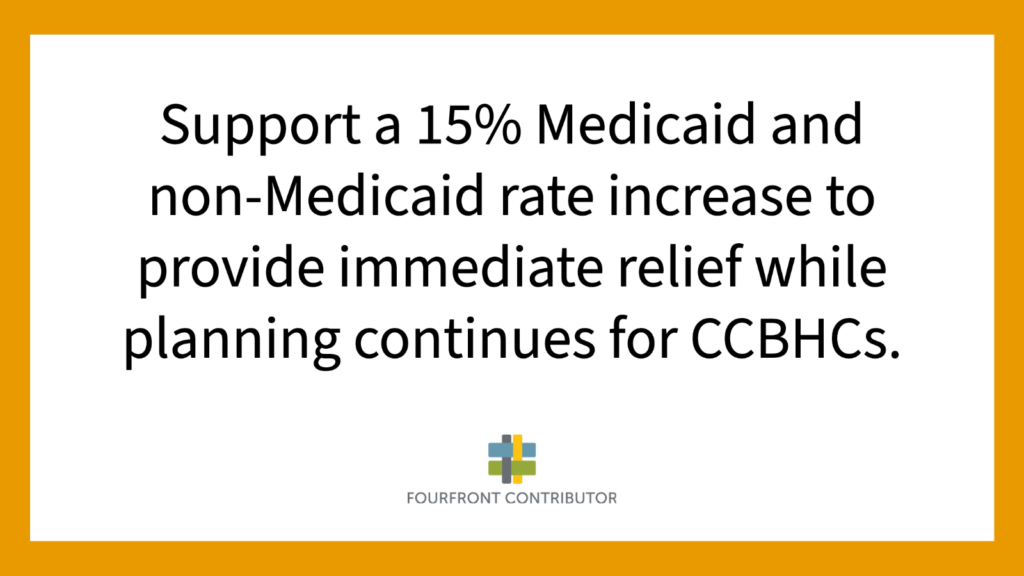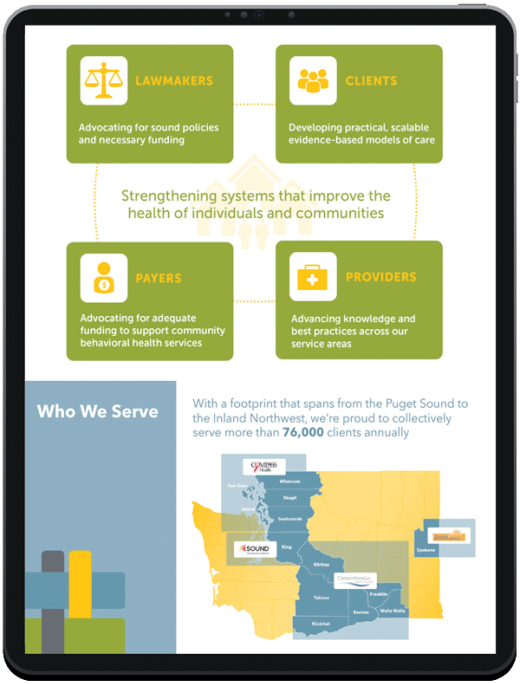
1. A 15% Medicaid and non-Medicaid rate increase
The current workforce crisis is the single most critical issue facing community behavioral health. Fourfront Contributor is asking for a 15% rate increase to provide immediate relief to providers.
This rate increase is essential to the short-term sustainability of our community behavioral health system, allowing providers to increase compensation and better recruit and retain the clinical staff crucial to meet growing needs.
2. Statewide CCBHC model adoption
The Certified Community Behavioral Health Clinic (CCBHC) model is a nationally proven, evidence-based approach that will create a sustainable funding system for providers who serve the Medicaid population.
Currently, more than a dozen states are designated as CCBHC demonstration sites. To learn more about the impact that CCBHCs have made on improving access to care, check out the National Council for Mental Wellbeing’s CCBHC State Impact Report.
Shifting to a statewide CCBHC model in Washington will help community behavioral health providers:
- Address the current workforce crisis that is limiting access to behavioral health services, ensuring programs remain open and ready to serve community members
- Offer competitive compensation to ensure our workforce keeps pace with growing demand
- Meet the needs of anyone who walks through our doors
- Standardize reporting and universal quality-of-care requirements
- Reduce reliance on hospitals, jails, schools, and other community partners in responding to behavioral health needs, maximizing resources across systems
Get in touch with us today!

Subscribe To Our Newsletter
If you want to stay up to date on community behavioral health policy improvements, subscribe to our newsletter
